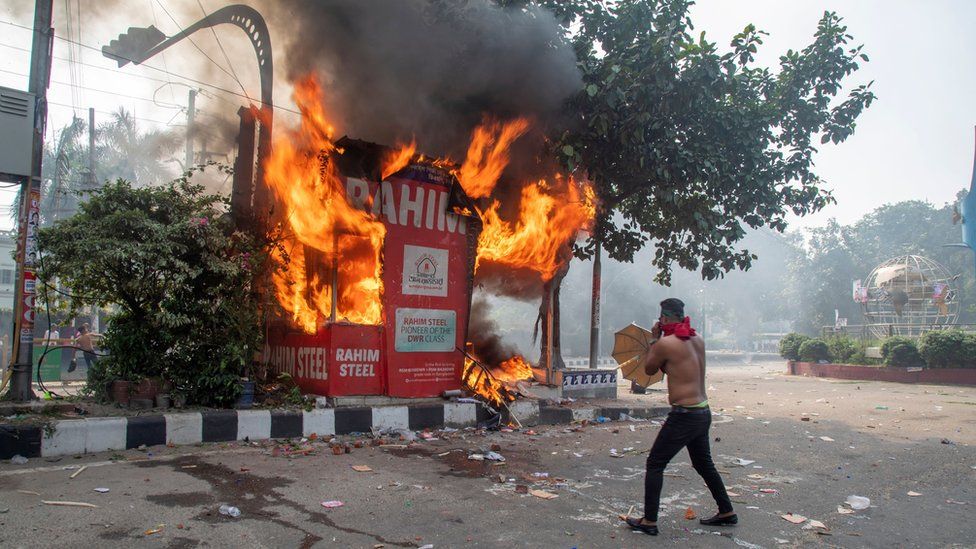Bangladesh is currently experiencing a surge of political tension that has erupted into protests and violence, leaving the country in a state of unease as it approaches general elections scheduled for January.
The situation escalated when several senior opposition leaders were arrested the previous Sunday, following a massive rally against the government that turned violent, resulting in the deaths of at least two opposition supporters.
The main opposition, the Bangladesh Nationalist Party (BNP), has intensified its protests, demanding the resignation of Prime Minister Sheikh Hasina.
The BNP and its coalition partners are advocating for the formation of a neutral interim government before the general elections, asserting that free and fair polls cannot be conducted under Prime Minister Hasina’s leadership. However, the government, led by her Awami League, has rejected this demand.
The BNP’s rally in the capital city, Dhaka, drew tens of thousands of participants, making it one of the largest gatherings in a decade. Unfortunately, the event turned violent, with police firing rubber bullets and tear gas, and opposition supporters hurling stones and bricks.
The streets in the capital were left littered with the remnants of sound grenades, tear gas canisters, and shattered glass. Both sides have accused each other of initiating the violence.

“The opposition supporters attacked police, journalists, hospitals, ambulances and the houses of the chief justice and other judges, creating chaos,” Foreign Minister AK Abdul Momen told the BBC.
The BNP said it was the other way round.
“It was a peaceful and non-violent rally, but the government was baffled by the massive turnout. So, they decided to disrupt the meeting,” senior party leader Amir Khasru Mahmud Chowdhury told the BBC.
“The rally was attacked from two sides. It resembled a war zone. So, we had to stop our public meeting midway.”
The ruling Awami League has firmly denied allegations that its supporters incited opposition activists participating in the rally.
In response to the police’s actions, the BNP initiated a three-day nationwide blockade, commencing on Tuesday. During the protests, demonstrators set fire to buses and clashed with security forces in various locations. To disperse the crowds, police resorted to using tear gas and rubber bullets. On Tuesday, clashes with the police resulted in the deaths of two opposition activists. As a result of the unrest, most vehicles have refrained from venturing onto the roads due to concerns about violence.
Political turmoil is not an uncommon occurrence in Bangladesh, and over the years, political parties have resorted to street protests to press their demands.
These actions have led to shutdowns, violence, and loss of life. In recent years, the political divide in the country has widened, with the bitterness between parties intensifying.
The Awami League is currently in its second decade in power and is seeking a fourth consecutive five-year term. Both major political parties appear reluctant to engage in dialogue, and the prospects for meaningful discussions before the upcoming elections seem slim.

